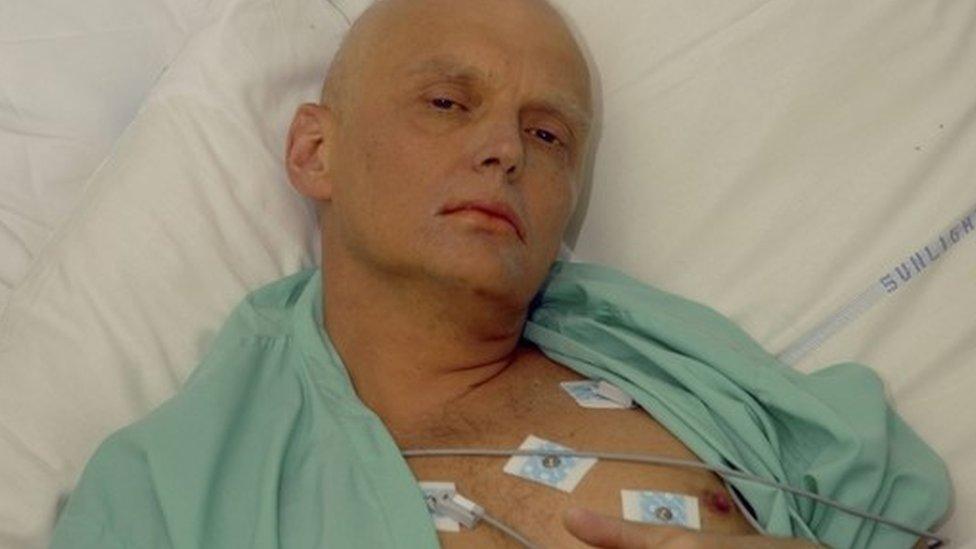Russia rejects claim of Montenegro plot
- Published
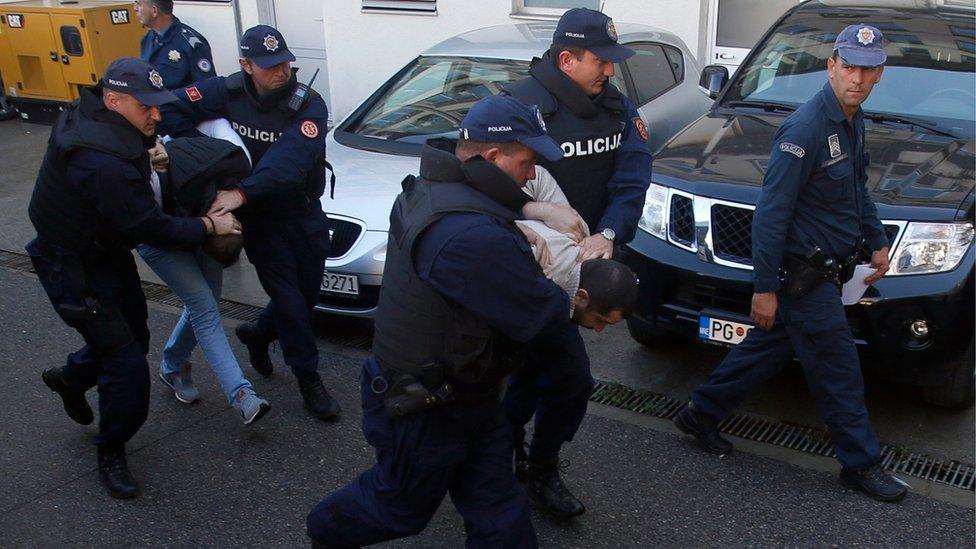
At least 20 people were arrested as Montenegrins prepared to vote on 16 October 2016
Russia has denounced as absurd and unsubstantiated allegations that "Russian state bodies" were involved in an attempted coup in the Balkan state of Montenegro.
The alleged plot dates back to a series of arrests hours before Montenegro's elections in October 2016.
At the time, Serb paramilitaries and Russian nationalists were blamed.
But prosecutor Milivoje Katnic has now named a Russian military figure as behind the alleged mission.
He said a Serb nationalist figure had been invited to Moscow by Eduard Sismakov, a former deputy military attache to Poland, with the aim of preventing Montenegro from joining Nato.
The alleged plotters are said to have planned to assassinate Prime Minister Milo Djukanovic.
Read more on this story:
The Sunday Telegraph quoted UK government sources , external as saying the plan had been directed by Russian intelligence officers with the support and blessing of Moscow.
As Montenegrins prepared to vote, more than 20 suspects were arrested. Prosecutors in November named two Russians as behind the alleged plot. One was Eduard Shirokov, another Vladimir Popov.
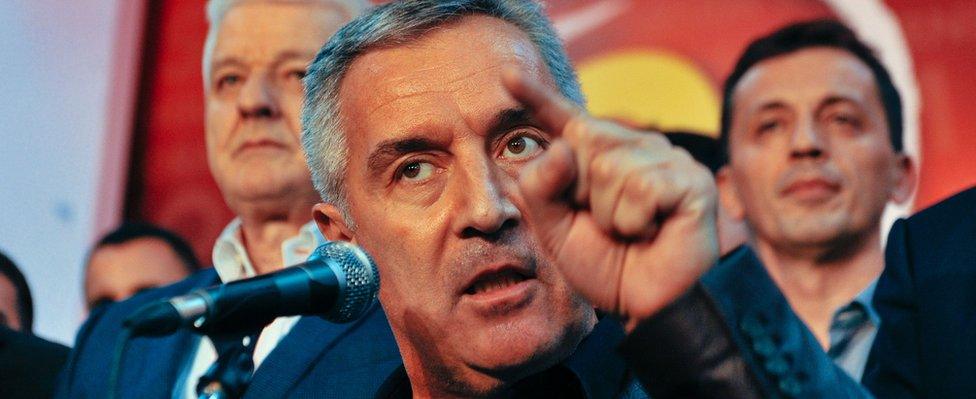
Milo Djukanovic's party fell short of a majority in last October's elections
Mr Katnic said on Sunday that the name Shirokov had been used as an alias by Eduard Sismakov.
"Nationalist structures in Russia are behind these events, but now we also know that Russian state bodies were involved," he said, urging authorities in Moscow to investigate what had happened.
Montenegro is likely to join the Western military alliance this year, but the opposition Democratic Front Alliance has called for a referendum on the decision and tensions in the Balkan state have been running high in recent days.

A murky affair - by BBC Balkans correspondent Guy Delauney
Establishing the truth is a tricky matter when hard evidence is in short supply.
Montenegro's government and public prosecutor say a murky alliance of rogue Russians, Serb nationalists and opposition politicians were behind a coup attempt. They have intensified that message - not just with accusations against Russia but by removing the immunity from prosecution of two opposition MPs.
But the opposition accuses the Montenegrin authorities of a "false flag" operation - and says the timing of the arrests may have swung a tight election the way of the government.
Certainly Milo Djukanovic has a knack of hanging on to power. Since 1991 he has served as prime minister or president with only the occasional break.
It will take more than "Whitehall sources" or the prosecutor's accusations to convince the doubters.

The special prosecutor told local media on Sunday that indictments would be made in April against 25 people. Two opposition MPs had their immunity from prosecution lifted last week.
'Not a single fact'
Senior figures in Moscow denounced the latest allegations on Monday.
Kremlin spokesman Dmitry Peskov said the accusations were "absurd" as Russia did not interfere in other countries' internal affairs.
Foreign Minister Sergei Lavrov denounced the Telegraph report as a British invention. He said the allegation was on a par with claims that Russia's secret services had links to President Donald Trump's administration and that Russian hackers had targeted the West and interfered in election campaigns.
"I realise that the British media like to get involved, they have repeatedly conjured things up out of thin air, like the Litvinenko case - the way they interpreted that," he said. "We haven't been presented with a single fact, out of all these false allegations."
A UK inquiry last year found that the London murder of ex-Russian spy Alexander Litvinenko by poisoning was probably approved by President Vladimir Putin.
- Published12 December 2016
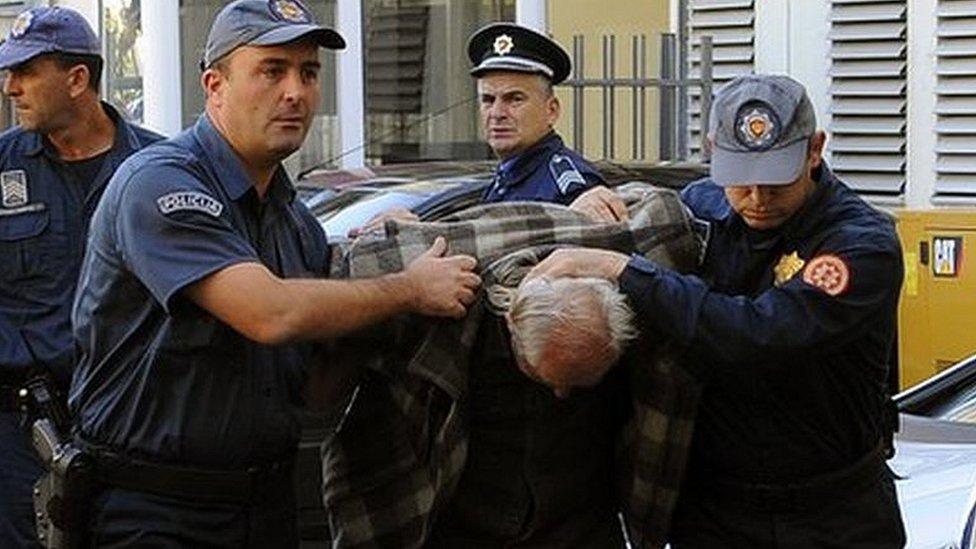
- Published17 October 2016
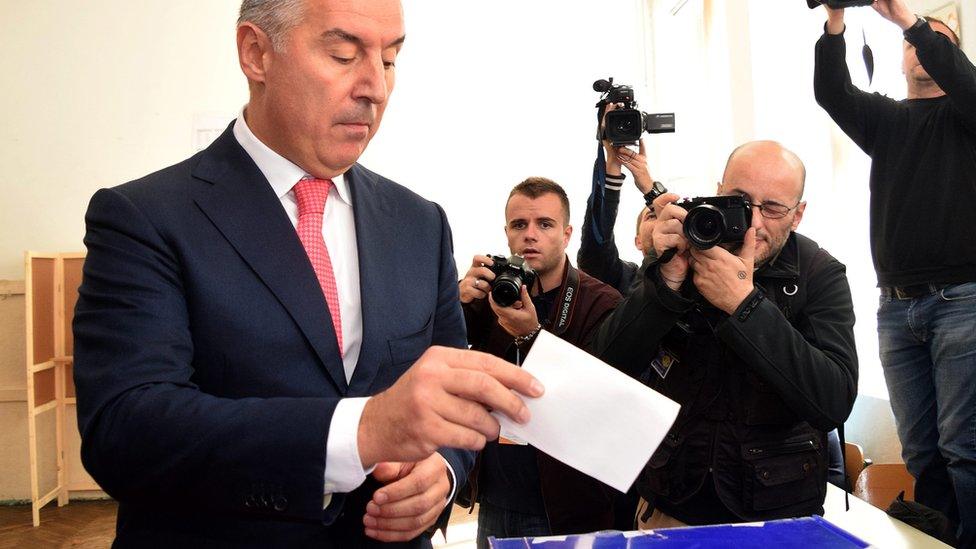
- Published19 May 2016
- Published21 January 2016
